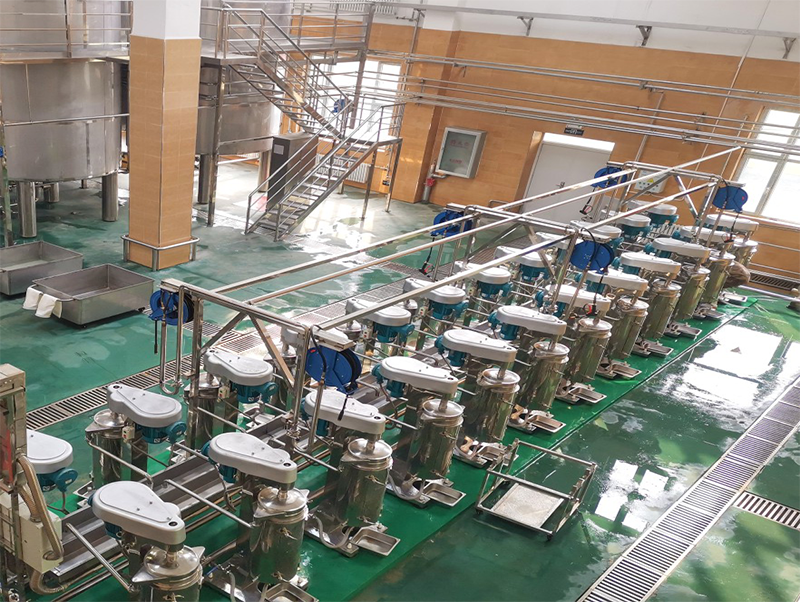Centrifuge separator technology has revolutionized various industries by providing an efficient and effective way to separate liquids from solids or different liquids of varying densities. This technology has been widely adopted in several industries, including pharmaceutical, chemical, food, and beverage, to name a few. In this article, we will explore five industries that have been significantly impacted by centrifuge separator technology, highlighting the benefits and advancements that have been made possible by this innovative technology.
Pharmaceutical Industry: Efficient Separation of Crystalline Materials
The pharmaceutical industry has been one of the primary beneficiaries of centrifuge separator technology. Centrifuge separators are used to separate crystalline materials from their mother liquor, and to clarify pharmaceutical solutions. This technology has enabled pharmaceutical manufacturers to produce high-quality products with improved purity and consistency. The use of centrifuge separators has also reduced the time and cost associated with traditional separation methods, allowing pharmaceutical companies to bring new products to market faster and more efficiently.
Food and Beverage Industry: Improved Quality and Safety
The food and beverage industry has also been significantly impacted by centrifuge separator technology. Centrifuge separators are used to separate cream from milk, clarify fruit juices, and concentrate food products. This technology has enabled food and beverage manufacturers to produce high-quality products with improved texture, taste, and appearance. The use of centrifuge separators has also improved food safety by removing impurities and contaminants from food products. Additionally, centrifuge separators have reduced the energy consumption and waste generation associated with traditional separation methods.
Chemical Industry: Efficient Separation of Liquids and Solids
The chemical industry has been another major beneficiary of centrifuge separator technology. Centrifuge separators are used to separate liquids from solids, and to clarify chemical solutions. This technology has enabled chemical manufacturers to produce high-quality products with improved purity and consistency. The use of centrifuge separators has also reduced the time and cost associated with traditional separation methods, allowing chemical companies to bring new products to market faster and more efficiently. Additionally, centrifuge separators have improved the safety of chemical manufacturing processes by reducing the risk of accidents and environmental pollution.
Wastewater Treatment Industry: Effective Removal of Impurities
The wastewater treatment industry has also been significantly impacted by centrifuge separator technology. Centrifuge separators are used to remove impurities and contaminants from wastewater, and to concentrate wastewater for further treatment. This technology has enabled wastewater treatment plants to produce high-quality effluent that meets regulatory standards. The use of centrifuge separators has also reduced the energy consumption and waste generation associated with traditional wastewater treatment methods. Additionally, centrifuge separators have improved the safety of wastewater treatment processes by reducing the risk of accidents and environmental pollution.
Biotechnology Industry: Efficient Separation of Biological Materials
The biotechnology industry has been another major beneficiary of centrifuge separator technology. Centrifuge separators are used to separate biological materials, such as cells and proteins, from their surrounding liquids. This technology has enabled biotechnology companies to produce high-quality products with improved purity and consistency. The use of centrifuge separators has also reduced the time and cost associated with traditional separation methods, allowing biotechnology companies to bring new products to market faster and more efficiently. Additionally, centrifuge separators have improved the safety of biotechnology manufacturing processes by reducing the risk of contamination and environmental pollution.
Conclusion
In conclusion, centrifuge separator technology has revolutionized various industries by providing an efficient and effective way to separate liquids from solids or different liquids of varying densities. The pharmaceutical, food and beverage, chemical, wastewater treatment, and biotechnology industries have all been significantly impacted by this technology. By adopting centrifuge separator technology, companies in these industries have been able to improve the quality and safety of their products, reduce energy consumption and waste generation, and increase their competitiveness in the market. As centrifuge separator technology continues to evolve, it is likely that even more industries will benefit from its innovative solutions.





Comments